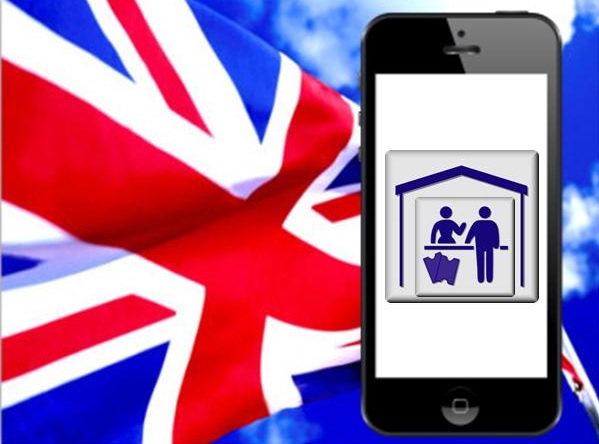A recent report has shown that 70 percent of consumers pay more than necessary for talk, text, and data.
Research by European firm, Consumer Champion, has indicated that between two thirds and three quarters (70 percent) of consumers in the United Kingdom are paying more than necessary for mobile technology services such as calling, text, and data plans.
It pointed out that many are paying for more services than they require and are locked into 24-month contracts.
Others, particularly children, have mobile technology service plans that are two low for their usage. This means that parents run the risk of regularly running up additional charges when they have exceeded their plan limits. The results of the study showed that an estimated 77 percent of consumers in the U.K. could be saving a minimum of £50 (around US$75) per year by changing their contracts. However, it also underscored the fact that there are some service providers that make it very challenging to switch, as they apply a charge to unlock handsets.
The result is that families across the country are paying billions of pounds too much for their mobile technology service.
 The average savings, according to Consumer Champion, for seven out of every ten people, could be an average of about £159 (around US$240) each, simply by choosing a contract that better reflects their actual needs. For families that are paying for mobile service on four smartphones, that could bring about an annual savings of over £600 (about US$900), which is certainly nothing to laugh at.
The average savings, according to Consumer Champion, for seven out of every ten people, could be an average of about £159 (around US$240) each, simply by choosing a contract that better reflects their actual needs. For families that are paying for mobile service on four smartphones, that could bring about an annual savings of over £600 (about US$900), which is certainly nothing to laugh at.
Among the causes for the selection of the wrong plan by consumers is that the majority of smartphones – for example the Samsung Galaxy and Apple iPhone models – are sold along with 2-year contracts that require users to pay a monthly fee in order to cover their service and the cost of the handset, but that have a limit to the number of calls, text, and data usage that are included.
As many mobile technology users are on plans that will charge them more when they exceed the capped amount of calls, text, and data – particularly in the case of children – additional fees are run up that make the service far more costly than it would have been if they had upgraded their plans to something that covers a larger amount of service.
In the city of Madurai, India, Christian churches are trying to stop smartphone use during service.
Churches throughout the city of Madurai, India, have had enough of the intrusion from mobile technology during their services and have started to crack down on the use of those devices on their premises.
Advisories have been issued against texting and against using messaging apps during service.
Some of the priests have said that they have been trying to decide whether or not they should be addressing individual parishioners who have continued to use mobile technology devices while they are in church. They have found that the practice of texting and the use of the WhatsApp mobile app have been especially problematic and intrusive during their services.
Mobile technology has been interrupting prayer services on a more regular basis, distracting the peace.
 Ringtones for incoming messages and calls are sometimes embarrassing for the mobile device owner, but they are certainly distracting and frustrating to the entire congregation, as they are occurring more regularly in the middle of prayer. The majority of churchgoers do carry their smartphones to church with them, but the clergy in Madurai is trying very hard to make it clear that the devices need to be silent and unused throughout a prayer service. The sound of a smartphone or the sight of its use is considered to be quite intrusive.
Ringtones for incoming messages and calls are sometimes embarrassing for the mobile device owner, but they are certainly distracting and frustrating to the entire congregation, as they are occurring more regularly in the middle of prayer. The majority of churchgoers do carry their smartphones to church with them, but the clergy in Madurai is trying very hard to make it clear that the devices need to be silent and unused throughout a prayer service. The sound of a smartphone or the sight of its use is considered to be quite intrusive.
The clergy is asking that the members of churches please follow what the majority have been doing and shut off their phones or switch them to silent mode. Should an emergency call come in – through a vibrating alert, not a ringtone – they want members to step out of the room in order to take it.
According to Father Jerone Simon of the Claretian Missionaries, who is a regular celebrant of mass at Ellis Nagar and Bastin Nagar churches, “When mobile phones came in first and smart phones later, it was tough time to control this intrusion. There have been instances when we had to tell the members getting calls to put their phones on the silent mode. But things are working out slowly.”
Signage and placards are being hung in some churches, such as St. Mary’s Cathedrial, in order to prevent the use of mobile technology and remind parishioners to silence their devices when they enter. Unfortunately, until now, that has not managed to reach everybody, quite yet.
 The average savings, according to Consumer Champion, for seven out of every ten people, could be an average of about £159 (around US$240) each, simply by choosing a contract that better reflects their actual needs. For families that are paying for mobile service on four smartphones, that could bring about an annual savings of over £600 (about US$900), which is certainly nothing to laugh at.
The average savings, according to Consumer Champion, for seven out of every ten people, could be an average of about £159 (around US$240) each, simply by choosing a contract that better reflects their actual needs. For families that are paying for mobile service on four smartphones, that could bring about an annual savings of over £600 (about US$900), which is certainly nothing to laugh at.
 Ringtones for incoming messages and calls are sometimes embarrassing for the mobile device owner, but they are certainly distracting and frustrating to the entire congregation, as they are occurring more regularly in the middle of prayer. The majority of churchgoers do carry their smartphones to church with them, but the clergy in Madurai is trying very hard to make it clear that the devices need to be silent and unused throughout a prayer service. The sound of a smartphone or the sight of its use is considered to be quite intrusive.
Ringtones for incoming messages and calls are sometimes embarrassing for the mobile device owner, but they are certainly distracting and frustrating to the entire congregation, as they are occurring more regularly in the middle of prayer. The majority of churchgoers do carry their smartphones to church with them, but the clergy in Madurai is trying very hard to make it clear that the devices need to be silent and unused throughout a prayer service. The sound of a smartphone or the sight of its use is considered to be quite intrusive.